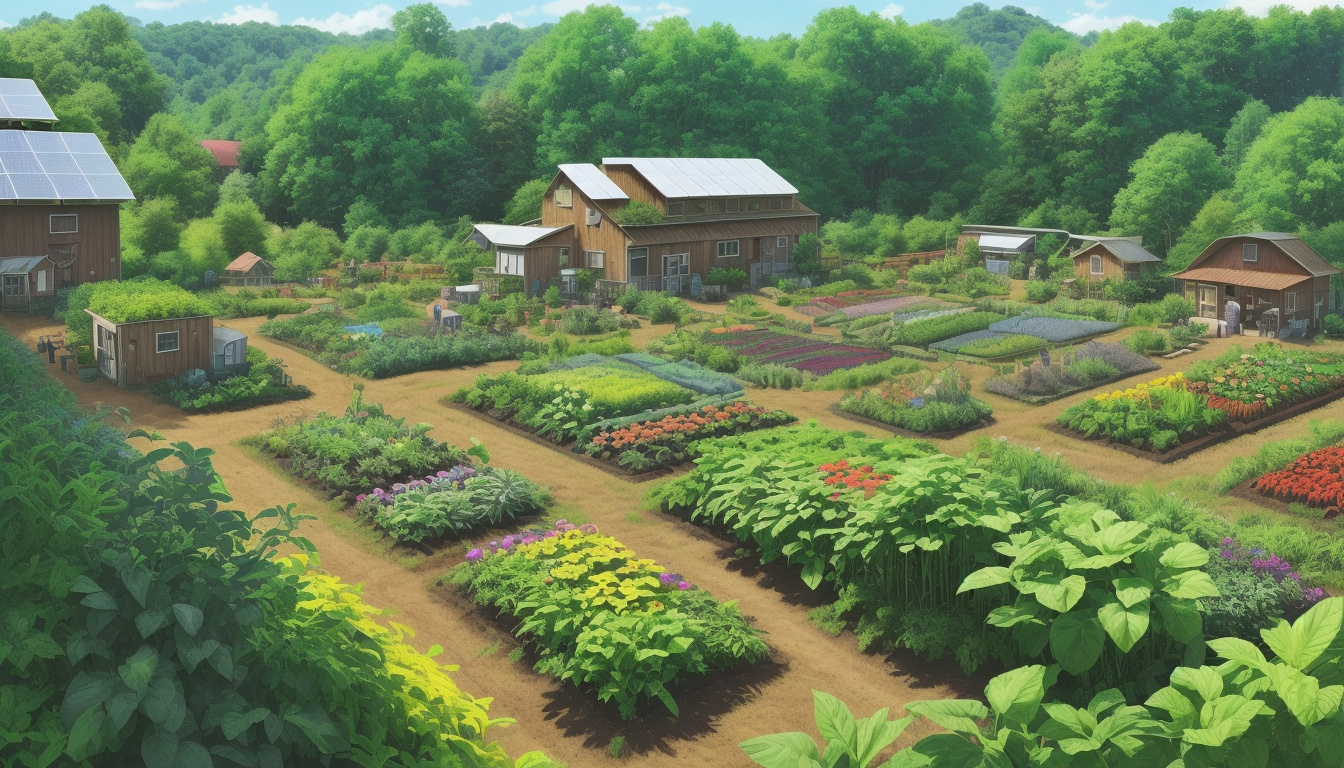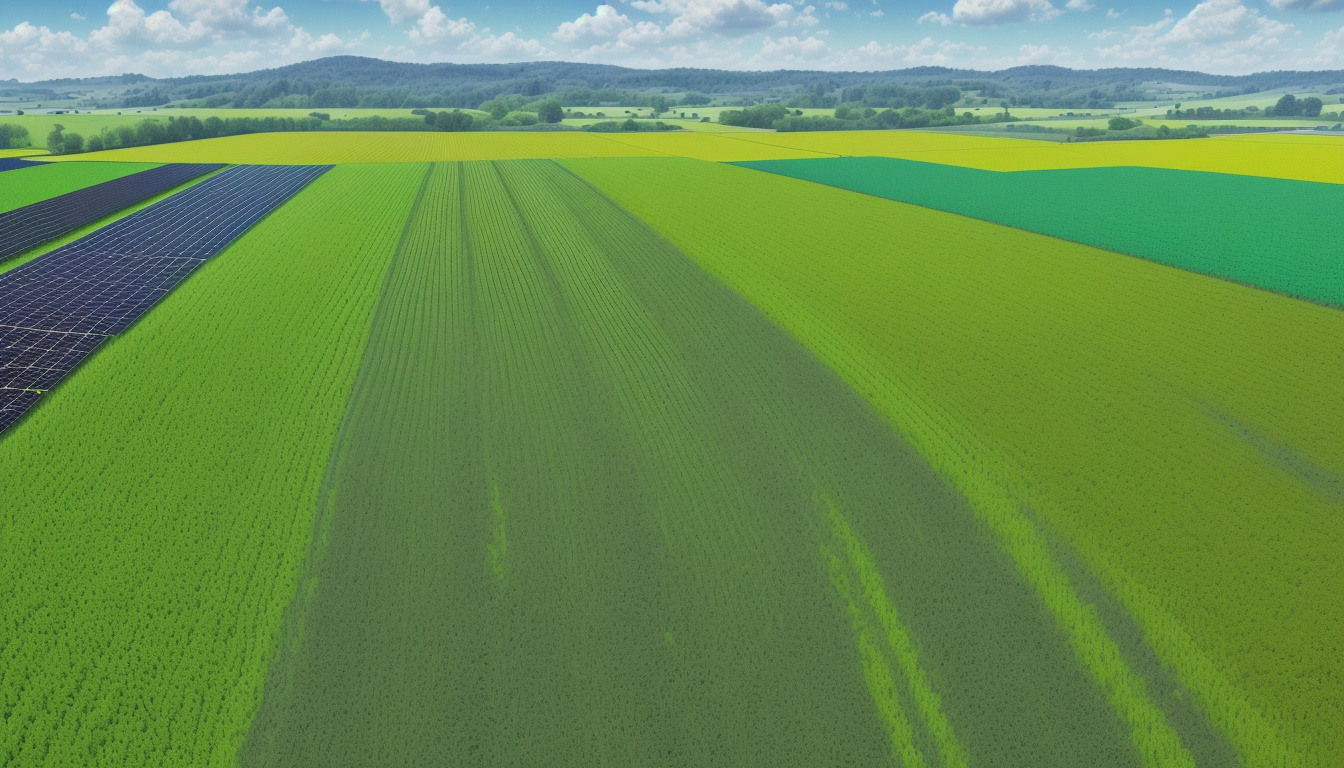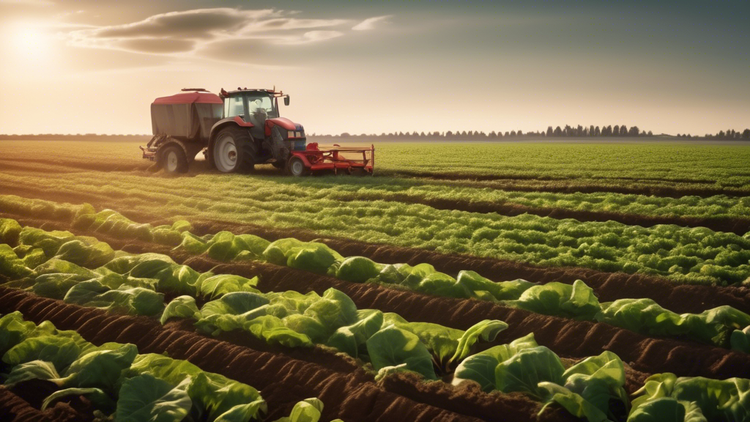Agricultural Sustainability: Strategies for a Greener Future

Hey there! If you’re a health enthusiast, a farmer, or simply someone interested in making our planet a better place, you’ve probably heard the buzz about agricultural sustainability. But what does it really mean? Why is it crucial for our future, and what can we do to promote it? In this article, we’ll dive into the definition and importance of agricultural sustainability, explore the challenges it faces, and share some innovative techniques and technologies that are shaping the future of farming. Plus, we’ll discuss how policies, regulations, and community efforts play significant roles in moving towards a greener future. Let’s unlock the secrets to nurturing our land while ensuring we can feed the world for generations to come!
Interested in our Digital Magazine APP?

Here's a thought
- Agricultural sustainability is vital for ensuring food security and environmental health.
- Key challenges include climate change, resource depletion, and soil degradation.
- Innovative farming techniques like permaculture and agroforestry enhance sustainability.
- Technology, such as precision agriculture and biotechnology, plays a crucial role in advancing sustainable practices.
- Community engagement and education are essential for fostering a collective commitment to sustainable agriculture.
Understanding Agricultural Sustainability: Definition and Importance
Agricultural sustainability is all about finding the right balance between meeting our current food needs while ensuring that future generations can thrive too. So, what exactly does this mean? In its simplest terms, agricultural sustainability refers to the practice of farming that is not just profitable but also environmentally friendly and socially responsible. This approach emphasizes the use of resources wisely to produce food without depleting the soil, water, and biodiversity that we heavily rely on. For consumers, understanding agricultural sustainability is vital; it allows you to make informed choices about the food you buy, often leading to products that are healthier for you and kinder to the planet. For health enthusiasts, the connection is even more apparent—sustainable farming often results in nutrient-dense foods free of harmful chemicals. Meanwhile, farmers are at the forefront of this shift, adopting innovative practices that not only improve crop yields but also help protect the environment. As we delve deeper into the concept, it's clear that agricultural sustainability is a crucial stepping stone towards a healthier planet and population.
Key Challenges Facing Agricultural Sustainability
Agricultural sustainability is a hot topic these days, but it doesn’t come without its fair share of challenges. For consumers, health enthusiasts, and farmers alike, understanding these challenges is crucial for the future of our food systems. First off, climate change presents a daunting obstacle, altering weather patterns and impacting crop yields. Farmers need to adapt their techniques and practices to ensure their production remains viable in this shifting environment. Additionally, soil degradation and water scarcity are significant issues that threaten agricultural sustainability; without healthy soils and sufficient water, the very foundation of farming is at risk. Moreover, maintaining biodiversity in agriculture is essential yet difficult, as modern farming often favors monocultures, which can lead to ecological imbalances. Lastly, the economic pressures on farmers can make it hard for them to adopt sustainable practices, as short-term profits often take precedence over long-term sustainability goals. By addressing these key challenges, we can pave the way towards a more sustainable agricultural future that benefits everyone.
'Agriculture is our wisest pursuit, because it will in the end contribute most to real wealth, good morals, and happiness.' – Thomas Jefferson
Innovative Techniques for Sustainable Farming Practices
When it comes to agricultural sustainability, innovative techniques are revolutionizing the way we approach farming today. Farmers are increasingly adopting practices such as precision agriculture, which uses technology to monitor and manage field variability in crops. This not only boosts yield but also minimizes waste, thereby conserving resources. Additionally, cover cropping and crop rotation are gaining traction as sustainable methods to enhance soil health and biodiversity. For health enthusiasts and consumers, these methods mean fresher, cleaner, and more nutrient-dense produce, while also supporting the planet's environmental balance. By focusing on agricultural sustainability, we can ensure that farming practices not only meet present demands but also safeguard resources for future generations. Let's explore how these techniques are not just beneficial for farmers, but for everyone who is invested in a healthier planet.
Interested in our Digital Magazine APP?

The Role of Technology in Promoting Agricultural Sustainability
In recent years, the role of technology in promoting agricultural sustainability has become increasingly vital for farmers, health enthusiasts, and consumers alike. As we strive to produce food in an environmentally conscious manner, innovations such as precision agriculture, drone technology, and smart irrigation systems are paving the way for more sustainable farming practices. For instance, precision agriculture allows farmers to monitor crop health and soil conditions in real-time, enabling them to apply fertilizers and pesticides more efficiently, reducing waste and minimizing ecological impact. Additionally, these technologies not only help in conserving resources but also result in healthier produce, appealing to health-conscious consumers seeking organic and sustainably sourced food. By embracing technology, we can ensure that our agricultural systems are resilient and capable of meeting the growing demands of our population while protecting the planet.
Policies and Regulations Supporting Sustainable Agriculture
When we talk about agricultural sustainability, it’s essential to recognize the role that policies and regulations play in promoting environmentally friendly farming practices. Governments worldwide are increasingly adopting measures that support farmers in transitioning to more sustainable methods. This includes financial incentives for those who focus on organic farming or reduce their carbon footprint. Regulations may require the use of specific agricultural practices that promote biodiversity and minimize soil erosion, such as crop rotation and cover cropping. These policies not only help protect our precious natural resources but also enable farmers to thrive economically by tapping into the growing market demand for sustainable food products. As consumers, we can voice our support for these policies, knowing that they ultimately contribute to our health and the wellbeing of our planet.
Here's something people ask about
What is agricultural sustainability?
Agricultural sustainability refers to farming practices that meet current food needs without compromising the ability of future generations to meet their own needs. It encompasses methods that are environmentally friendly, economically viable, and socially responsible.
What are some key challenges facing agricultural sustainability?
Key challenges include climate change, soil degradation, water scarcity, loss of biodiversity, and the economic pressures on farmers. These factors negatively impact productivity and the overall health of the agricultural ecosystem.
What innovative techniques can be employed for sustainable farming practices?
Innovative techniques include permaculture, agroforestry, crop rotation, polyculture, and the use of organic farming methods. These approaches promote biodiversity and reduce dependence on chemical inputs.
How does technology promote agricultural sustainability?
Technology plays a crucial role by providing tools for precision farming, efficient resource management, and data analytics. Innovations like drone monitoring, soil sensors, and climate-smart agriculture contribute to sustainable practices.
What policies and regulations support sustainable agriculture?
Policies such as subsidies for organic farming, incentives for conservation practices, and regulations that protect natural resources are crucial. These frameworks help guide farmers towards sustainable practices while also ensuring food security.
We're striving to bring a range of different topics that relate to the Farming Food & Health sector. If you've got a question, please feel free to contact us.





